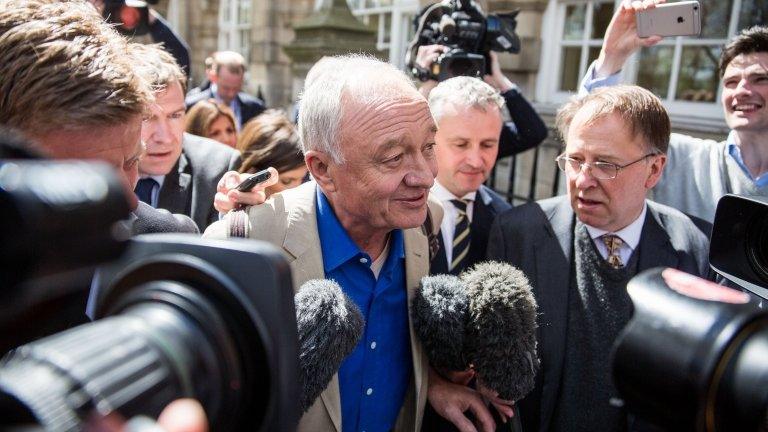Jeremy Corbyn's response to anti-Semitism in Labour criticised by MPs
- Published
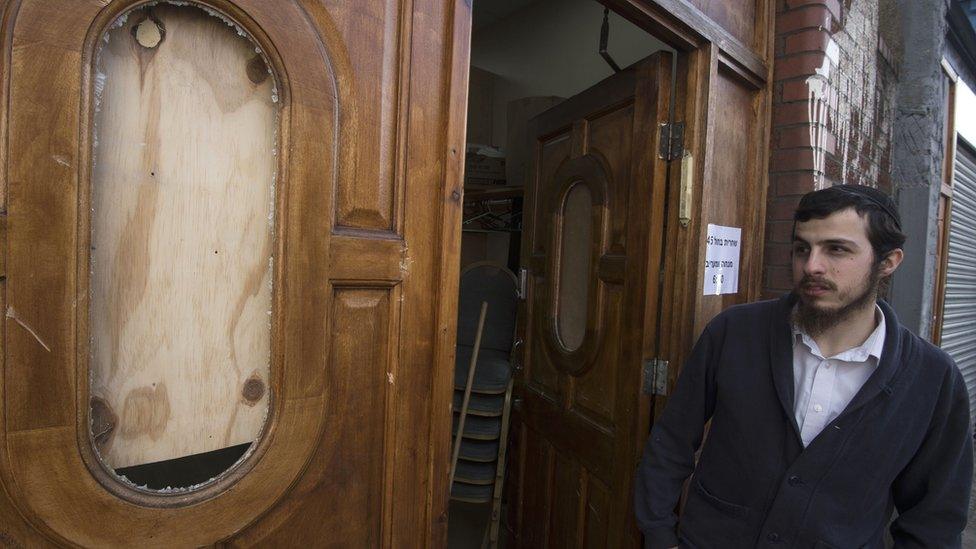
An attack on a synagogue in London in 2015
Labour leader Jeremy Corbyn has not done enough to tackle anti-Semitism in the party, a committee of MPs has said.
The Home Affairs Select Committee report criticised him for a lack of "consistent leadership" on the issue, which it said benefited people with "vile attitudes" toward Jewish people.
Mr Corbyn accused the committee of a "disproportionate" emphasis on Labour.
The MPs also criticised Twitter, which they said hosted "vast swathes" of hate speech and abuse aimed at Jews.
Their Anti-Semitism in the UK report, external said the social network should do more to identify abusers. A spokesman for Twitter said it tackled hateful conduct "head-on".
'Toxic atmosphere'
The cross-party committee also criticised National Union of Students (NUS) President Malia Bouattia for failing to take the issue sufficiently seriously on university campuses.
Among its findings were:
Labour MP Luciana Berger received more than 2,500 abusive tweets in three days in 2014
Since walking out of the launch of a report on anti-Semitism in the Labour Party, the Jewish Labour MP Ruth Smeeth has reported more than 25,000 incidents of abuse
Police-recorded anti-Semitic hate crime in England and some parts of Wales increased by 29% between 2010 and 2015, compared with a 9% increase across all hate crime categories
A fifth of British Jewish people responding to an Institute for Jewish Policy Research study had experienced at least one anti-Semitic harassment incident during the last year, with 68% of incidents taking place online
The report by five Conservative, one SNP and two Labour MPs made unanimous recommendations to Twitter, the police and politicians on how to tackle anti-Semitism.
Jonathan Arkush, president of the Board of Deputies of British Jews, welcomed the report.
He said: "We look forward to a strong response from the government and the speedy implementation of the committee's recommendations."
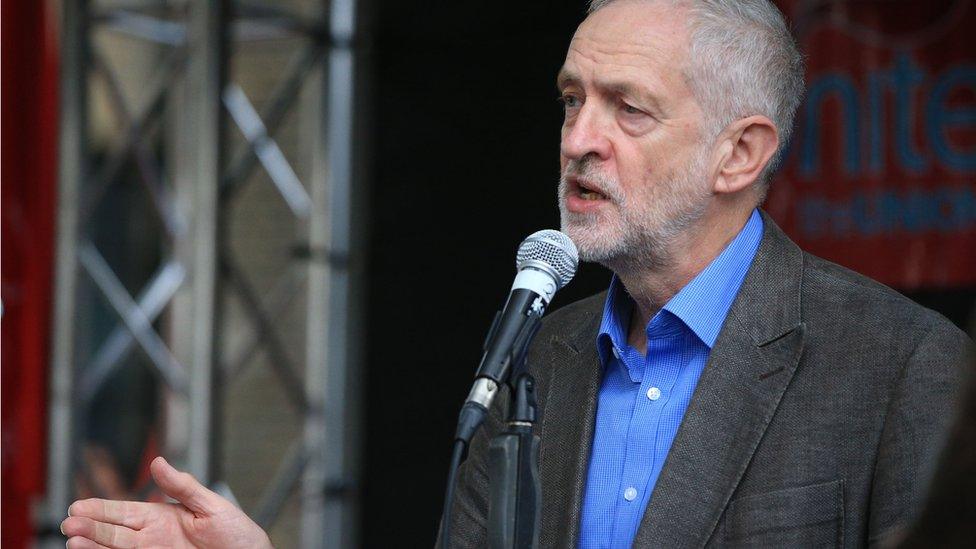
The report is critical of Jeremy Corbyn and his leadership on the issue
The MPs said the failure of the Labour Party "consistently and effectively to deal with anti-Semitic incidents in recent years risks lending force to allegations that elements of the Labour movement are institutionally anti-Semitic".
In June, a report by the former director of human rights body Liberty, Shami Chakrabarti - who has since become a Labour peer and shadow attorney general - found that the party was not overrun by anti-Semitism or other forms of racism, but there was evidence of "minority hateful or ignorant attitudes and behaviours".
However, the MPs said the Chakrabarti report had failed to deliver "a comprehensive set of recommendations, to provide a definition of anti-Semitism, or to suggest effective ways of dealing with anti-Semitism".
'Narrow pool of opinion'
The committee's report said Mr Corbyn had a proud record of campaigning against many types of racism, but did not fully appreciate "the distinct nature of post-Second World War anti-Semitism".
The party was incompetent in dealing with members accused of anti-Semitism, it added.
Mr Corbyn hit back at the committee's findings and said the report's "political framing and disproportionate emphasis on Labour" risked undermining it.
He said the committee had heard evidence from "too narrow a pool of opinion" and had "violated natural justice" by rejecting requests from Baroness Chakrabarti and the Jewish Labour Movement to give evidence.
The report also "unfairly criticised" Baroness Chakrabarti, Mr Corbyn said, adding that Labour was "already acting on her recommendations".
Jeremy Newmark, the national chair of the Labour Jewish movement, said anti-Semitism cut across political parties and was being dealt with by his own.
"We do see people suspended following incidents of anti-Semitism - often within less than 24 hours," he said.
"We have major investigations taking place into figures like Ken Livingstone and Momentum vice chair - or former vice chair - Jackie Walker."
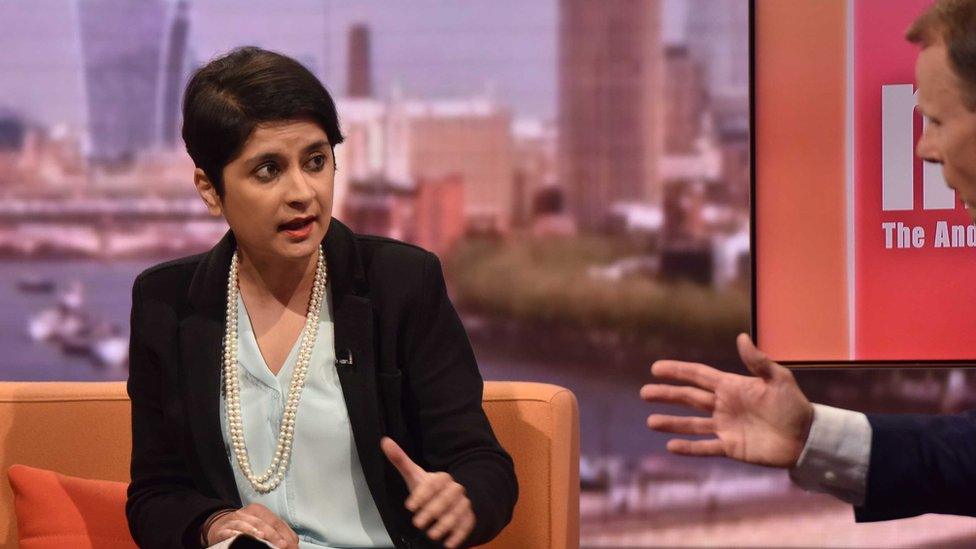
Baroness Chakrabarti has said there was "nothing remotely transactional" about her report
Former London mayor Mr Livingstone, who was suspended from Labour over anti-Semitism, said the committee was "rigged" against Mr Corbyn.
"The membership was either all solidly Tory - who weren't friends of Jeremy - [or] filled with [Labour] people who would actually go on, a few weeks later, to vote for no confidence in Jeremy," he told BBC London.
Conservative MP Tim Loughton, who is acting chairman of the committee, said he resented the "attack on the integrity" of the MPs, who he said had "gone out of [their] way to be non-partisan".
He told the BBC's Andrew Marr Show: "You cannot deny that the spate of anti-Semitic incidents and allegations made against Labour Party members and many elected members has raised the whole profile of this issue.
"And it was because of that, that Jeremy Corbyn commissioned the so-called independent Chakrabarti report, which we feel wasn't worth the paper it was written on.
"And he still seems to be in denial about the nature and extent of the problem he has got within his own party."
Mr Loughton said the committee was still waiting for a reply from Baroness Chakrabarti "about the timings of when she was offered the peerage".
Last month, she said there was "nothing remotely transactional" about her work for Labour and subsequent peerage.
Several Labour MPs, including Gisela Stuart, Pat McFadden and John Mann, have said the MPs' report must be taken seriously by the party.
'Outright racism'
The committee also said abuse on Twitter was "growing exponentially" and the company must do better at identifying abusers.
"The onus should not be on victims to monitor their accounts for ongoing abuse and report it to the company," MPs said.
A spokesman for Twitter said it tackled hateful conduct "head-on", adding that there was "a clear distinction between freedom of expression and conduct that incites violence and hate".
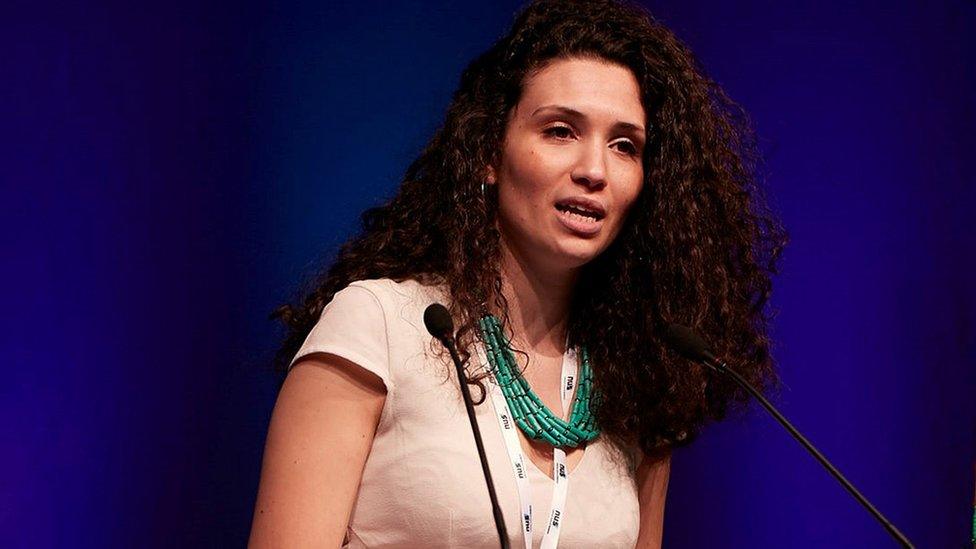
The President of the NUS wrote in 2011 that Birmingham University was a "Zionist outpost"
The report expressed concern about use of the word "Zionist", saying "use of the word in an accusatory context should be considered inflammatory and potentially anti-Semitic".
But it did say free speech should be allowed on the Palestinian issue, saying it was not anti-Semitic to criticise actions of the Israeli government.
The committee said a 2011 blog written by Ms Bouattia which called Birmingham University a "Zionist outpost" smacked of "outright racism".
Ms Bouattia said she was "deeply concerned" about the reported rise of anti-Semitism on campus and regarded tackling it as a "key priority".
- Published18 July 2016
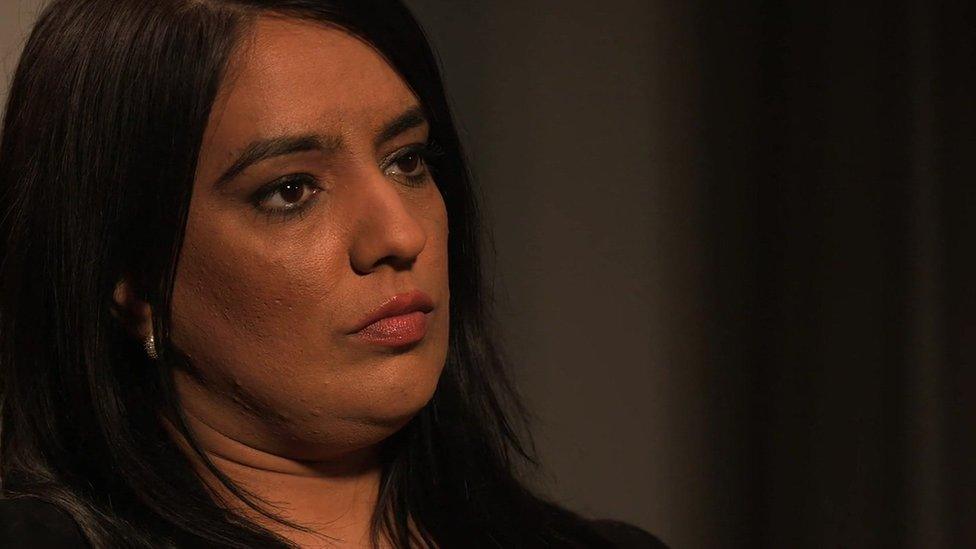
- Published30 June 2016
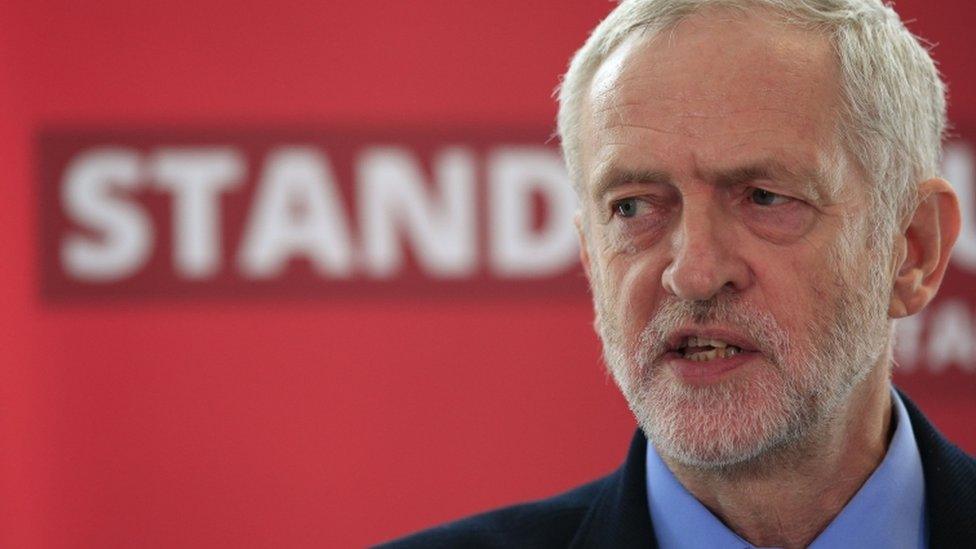
- Published8 June 2016
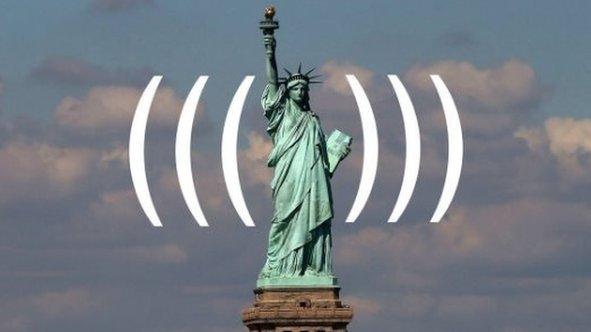
- Published29 April 2016
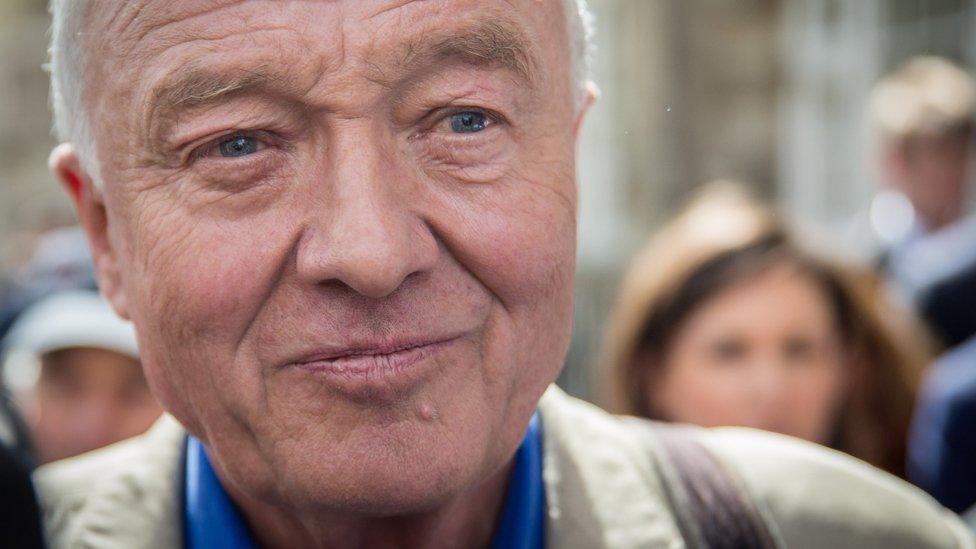
- Published29 April 2016
